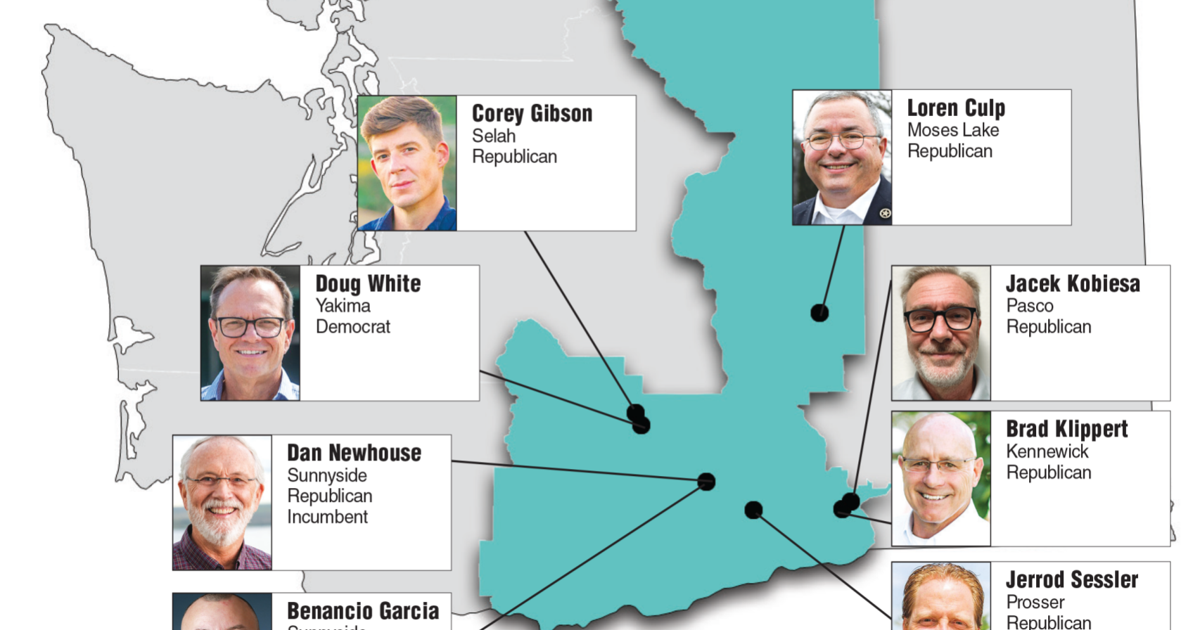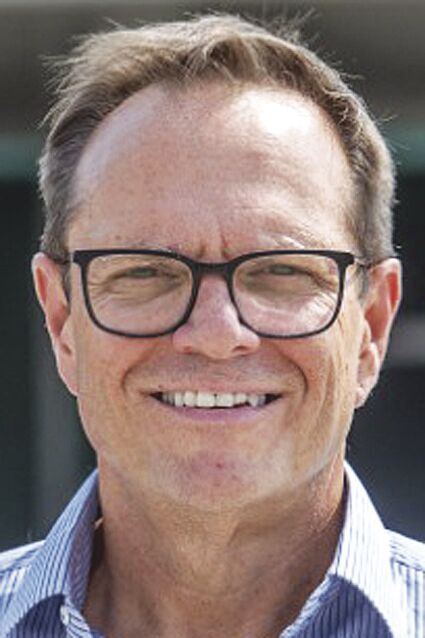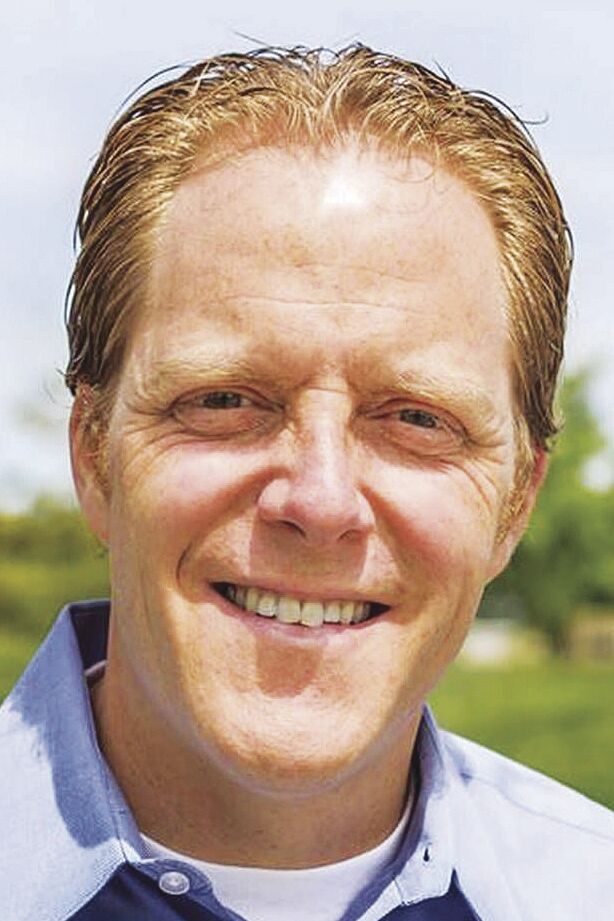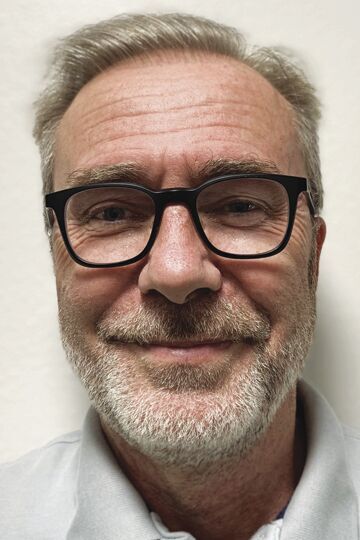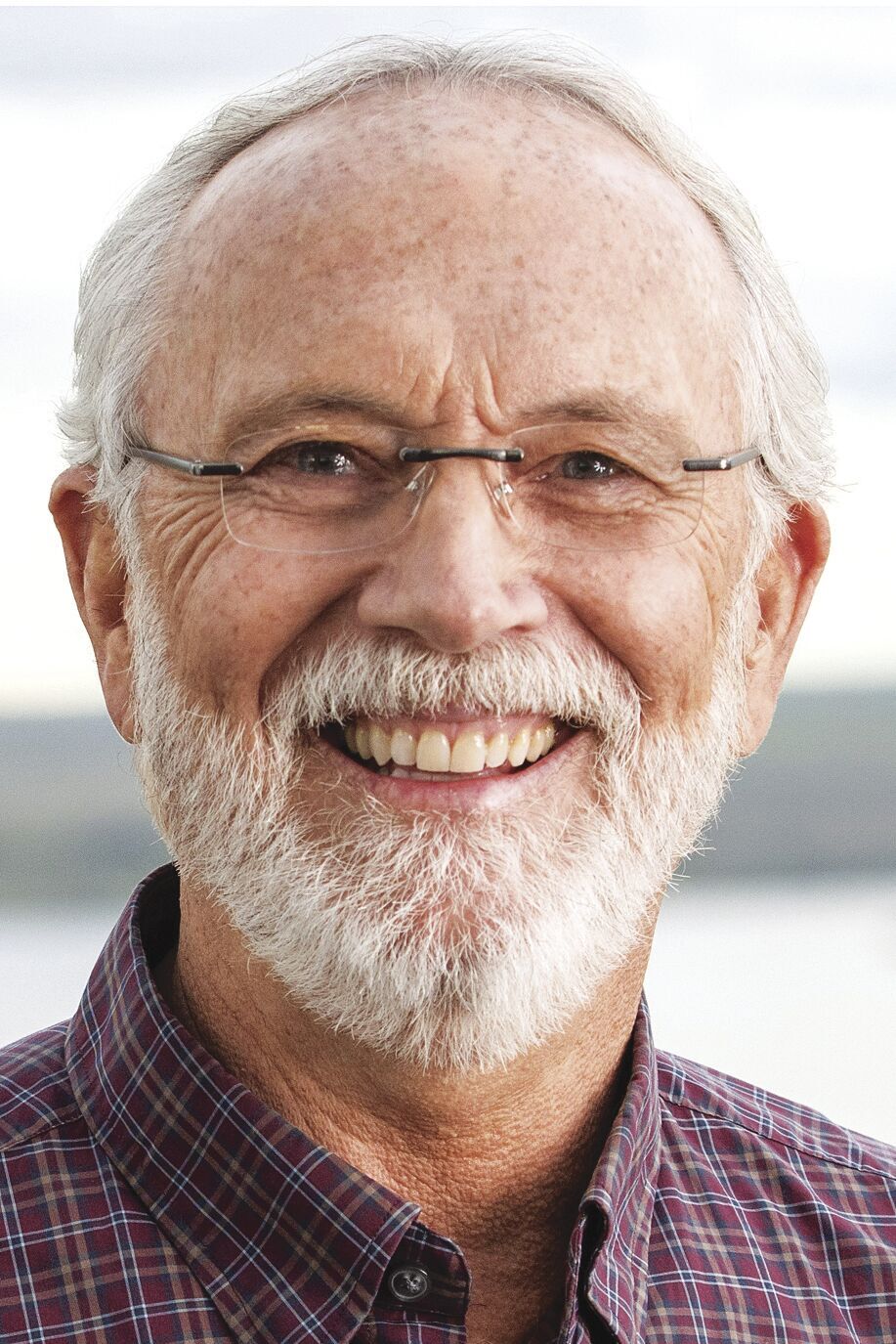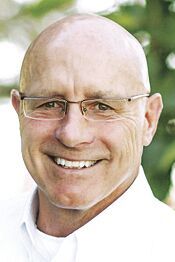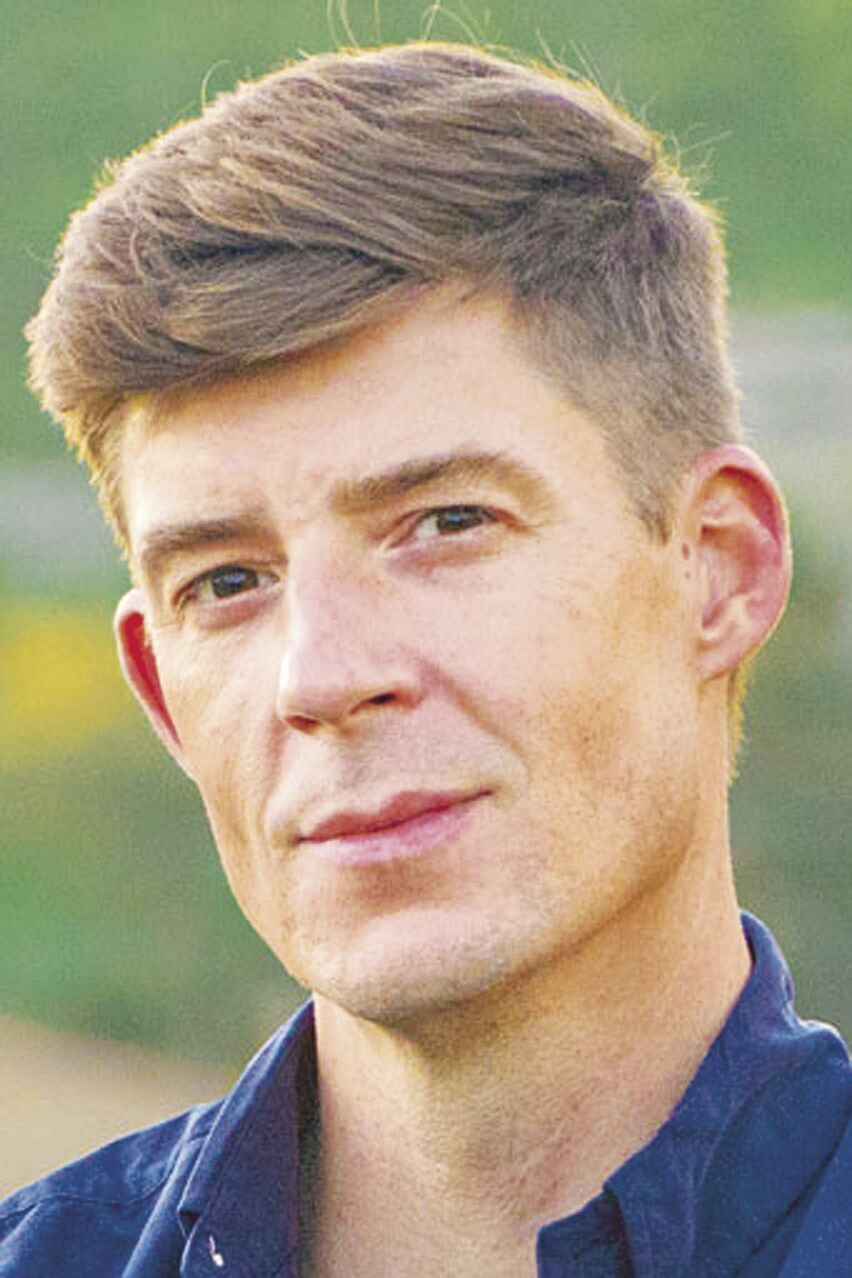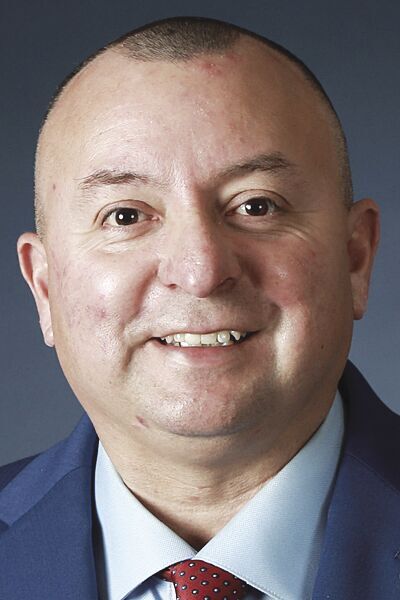Republican U.S. Rep. Dan Newhouse, who is running for reelection in 2022, said he opposes lifting the public health order used to expel migrants and asylum seekers at the southern U.S. border throughout the COVID-19 pandemic.
The order, called Title 42, was invoked by the Trump administration in March 2020 to remove migrants during the COVID-19 pandemic. The law was aimed at preventing the spread of communicable diseases, in this case COVID-19 in immigration detention centers, but denied migrants the chance to seek asylum, sometimes multiple times.
Migrants have been expelled more than 1.9 million times since March 2020, according to The Associated Press.
The Biden administration attempted to lift the health order in May — and go back to detaining and deporting migrants who don’t qualify to enter the country — but a federal judge blocked the change.
Title 42 is part of a larger conversation about immigration policies and asylum in the U.S., especially as people are seeking refuge from conflicts in Afghanistan, Ukraine, Central America and elsewhere.
The bodies of about 50 dead migrants were found inside an abandoned tractor-trailer in San Antonio, Texas, last week in what officials called the deadliest human smuggling case in recent U.S. history.
Sunnyside incumbent Newhouse faces seven challengers in the race for his seat in District 4 in Central Washington: Republicans Loren Culp of Moses Lake, Benancio Garcia of Sunnyside, Corey Gibson of Selah, Brad Klippert of Kennewick, Jacek Kobiesa of Pasco and Jerrod Sessler of Prosser, along with Democrat Doug White of Yakima.
The top two candidates in the Aug. 2 primary, regardless of party, will advance to the November general election.
This is part of a series of District 4 issue stories leading up to the August primary.
Culp did not respond to a request to participate in this Q&A series. Here’s what the rest of the District 4 candidates had to say about immigration policy and asylum in the U.S. Some responses have been shortened slightly.
What current plans or new ideas do you support for immigration reform?
Doug White: I don’t think my ideas for immigration reform are necessarily new. They’ve been batted around for a long time. Unfortunately, they’ve never been advanced. And this is amnesty. It needs to happen. People that were born in this country or people who have spent their entire lives in this country, that have been educated in this country, who pay taxes in this country deserve to be Americans. They are Americans. The only difference is that they don’t have the documentation to prove it. The H-2A visa process right now is too confusing, too costly and, in some instances, inhumane. We need to carve out a pathway to citizenship for those people that are willing to come and give their time, their effort, their energy, their sweat to us year after year. If they want it, we need to be able to figure out how they can earn it in a responsible and fair manner. With regard to our border immigration, I believe in orderly immigration. We need to figure out how to be able to better control our borders. I do believe that. I’m not sure how that actually works at this particular time, but we need to be able to process people through in a much more efficient and effective manner.
Jarrod Sessler: First of all, I would say that our immigration policies are not incredibly broken. Could they use some improvements? For sure. But one of the biggest problems we have is that our executive branch has been running (roughshod) over the actual immigration laws. Congress needs to take a hold of that and reinforce the requirement for our executive branch to actually follow the laws that are in place. When they do, then our immigration system is consistent. That said, we have a number of things to look at. For example, we have DACA, which was an illegitimate, in my view, executive order that was signed by the president, but you can’t undo that now, and so we need to deal with that as is. And we’ve also got a lot of long-standing workers who have a history of working in this country back when the rules were very different. For those people, I feel like we need to find out and determine a path for citizenship that includes keeping their nose clean, paying their taxes, learning the language, and continuing to be good workers and bettering themselves as American people. And then we’ve got people who are just illegal. They broke the laws as soon as they came across the border, and those people need to be dealt with. We need to secure the border. We need to come up with gates of entry with reasonable requirements for entry, with the starting point being our existing laws.
Jacek Kobiesa: I don’t see any path to citizenship for people who jumped across the fence or they came across the river, whatever you want to call this. I believe that anybody who comes to the United States, they need to follow the same process as I did, as other people did. That means you apply for immigration status in the United States. There’s some waiting time, there are some fees, eventually you’re going to get a visa, and then you can fly to the United States and you can apply eventually for a permanent residency, and then eventually for citizenship. Right now, if you look at this whole situation, the whole system’s overwhelmed with the amount of people just coming over to United States. What I would support is people who are here, they need to get some legal status, a work permit, they have to pay taxes just like everybody else does.
Dan Newhouse: I think that there are things that we can do to ensure that we have legal immigration. We are a rare country of immigrants. Every single one of us, with the exception of our Native American neighbors, have roots going back to immigration, to immigrants. We need immigration. We need people to join our workforce. But we want legal immigrants. We can’t have these open borders, these policies have been put in place the last year. We’ve lost control of our borders. The human trafficking, the drugs that are coming across that are devastating our communities, we cannot tolerate that. This is a huge problem. We have to get control of our sovereign borders. For instance, Title 42, which has allowed the Border Patrol to turn people back at the border immediately, this administration wants to reverse that. We have to take steps to stop that path to illegal immigration and put into place policies that allow legal immigration.
Brad Klippert: Under immigration programs, for those who want to come to this nation, especially those who have skills that we need in this nation, we need to make a much quicker process for them to be able to get into this nation. Then we need to secure our borders so that people who are coming into this nation illegally are stopped so that there is a legal process to protect our national security and also protect every interest in the United States of America. Because when they come here illegally, that is a huge problem for the United States of America and so we need to revamp totally and make a much better immigration process.
Corey Gibson: I do believe that there should be a pathway to citizenship, but I think that needs to apply to our DACA kids and with pathways that also exist for those that have been in our country working for a long time, but I do not believe that there should be a pathway to citizenship for every single person in this country that has come across illegally. Overall, I think the No. 1 thing that we have started doing with our immigration policy is just begin enforcing the current laws that are on the books. I think that we need to start there. I do believe that the wall is very important, not just for immigration, but to stop drugs and human trafficking across the border. So I believe in a pathway to citizenship, but I believe in a pathway that is limited to people that have been in this country for a while, they’ve been here working. I do not believe that we should offer a direct pathway to citizenship for the hundreds of thousands that have come across the border over the course of the past couple of years.
Benancio Garcia: I want to be able to use the Ronald Reagan amnesty to solve our work issues, to solve the people that have been contributors here within our own community and throughout the country. Now, if you are a drug dealer or if you’ve had a history of that, I don’t want you here in America. We can see what drugs have done to our community; look at how many people are dying. I want to make sure there is a check done within a five-year period and that we can determine that this person’s paid their taxes, they’ve done the right thing to be in America and they’ve been contributing already and they followed our laws and also go through the program to understand English. It’s good to understand other foreign languages — that’s a plus. But we want to make sure that they understand our history and English as the predominant language spoken here in the United States. I want that done within five years, as far as making that determination. And also, remember, there’s another way to become a citizen and that’s joining our U.S. military. We welcome and want to honor a legal way to make sure that people have an opportunity, not a guarantee, to be an American citizen.
How should the U.S. handle the increasing number of refugees and asylum seekers from Ukraine, Afghanistan, Central America and elsewhere?
White: The United States has always been a country of mostly immigrants and they are asylum seekers. Some of my family did that. They escaped here, ran here to escape religious persecution and poverty and various other things. We have always opened our borders and our arms to people coming here. The Afghan war was a tragedy that went on for too long, and it was good that Biden put an end to it. It was difficult, but it had to happen. We have lost so many people. War is ugly. We need to accommodate refugees. That is what we need to do. It’s who we have always been. We’ve seen the ugliness of war. We’ve seen how it has affected us as a country, how it affects our service personnel. So we can start to get a sense as to what the impact on these asylum seekers are. I don’t believe the United States should do more than their share. The entire world should also accept them, but we need to once again show our leadership role in the world.
Sessler: I think that what we should do for true asylum seekers is we ought to follow the law. There are some specific rules and laws related to asylum seekers, including buffering. A lot of those people have many other options that they could be going to and that they legally should be going to for countries that they should be seeking asylum to. For true asylum seekers that meet the criteria of asylum that are not trying to abuse the system, I think that we ought to honor their request and that they ought to go through the legal process of determining whether or not they should be granted asylum. There’s a reason why we have those laws in place and they ought to be followed. In terms of the increased number related to various things happening around the world, whether it’s Ukraine or elsewhere, I will continue to say that a strong America is a leading indicator to a safer world, and when America’s weak, we express and expose that weakness to the rest of the world and more people die, more people end up falling underneath the grips of tyranny. It is a very bad move when America does not demonstrate strength.
Newhouse: Through history, the United States has always been an open sanctuary for people that are fleeing persecution from war-torn areas, giving sanctuary to people, sometimes temporarily, so that they have an opportunity to come here to be safe and then return home to their countries when times are safer. If we have an organized, well-thought system for doing that, that’s good. We are a beacon of hope in the world, and I think we should continue to provide that bright, shining light of democracy across the world and continue to look for ways to allow these countries to live in harmony and peace. But the current system that we have in place for just having an open border with no controls and overwhelmed patrols — we’re trying very hard to protect our country to keep people out that have nefarious thoughts and plans and want to do harm in our country. We cannot allow that to happen. Like I said before, we have to know who’s coming, why they’re coming, and what they want to do once they get here.
Kobiesa: The Afghans, for example, I first thought that there was a bunch of women that were being terrorized and some of them being killed by the Taliban. It was our hastily departure from Afghanistan which caused all these difficulties. Do I support these people? Yes, bring them to the United States, of course if they want to, and they have to be willing to assimilate to our culture. Same thing with other nations, if they have a valid reason — because as I described these woman in Afghanistan are being persecuted and being killed in many cases — if that’s the case for people in other countries, I would support that kind of immigration, but it has to be structured, it has to be addressed before these people even arrive in the United States. They have to be taught to understand and speak English, that we have different customs than they do. They have to be able to respect those customs. If they are not willing to respect those customs, if they are not willing to learn English, maybe they should consider different countries to go to.
Klippert: Same thing, especially with the people in Ukraine: improve the immigration process so they can get here much more quickly. Those people need to be vetted so that we’re not letting very, very dangerous people come into this nation. We want to stop the influx of human trafficking and the influx of illegal, very dangerous drugs which are killing Americans right and left at record numbers. We need to have a vetting process that is much quicker so those that we want to allow to come in the United States of America can do so much more quickly, both in their interests and in the interest of the United States.
Gibson: As a country, we continue to be the most welcoming country in the world when it comes to immigration and welcoming in refugees, and I think that should continue. I think that the only difference is that we just have to address the illegal immigration. I am very open and believe very much that we should be a country that accepts refugees with legitimate claims of refugee status into this country. When it comes to welcoming people from other countries that have the right to seek refugee status, I think that we should be welcoming to those people.
Garcia: When it comes to refugees, my concern is really making sure that we understand their background as much as possible, whether they’re here to be an American. Because unfortunately, they’re under duress in their home country and they may end up being harmed or killed if they returned to their home country. I want to make sure that you’re not a threat or a terrorist to our country. Refugees out of Ukraine or Afghanistan or any other country that’s in that type of situation, I just want to make sure that they’re not going to be a threat to our country and that we know where they’re at for a few years and that they assimilate as Americans. No one could help the situation that they’re in, whether it be Afghanistan or Ukraine, but we want to make sure that they’re not a threat to our country and we have good information on them.

